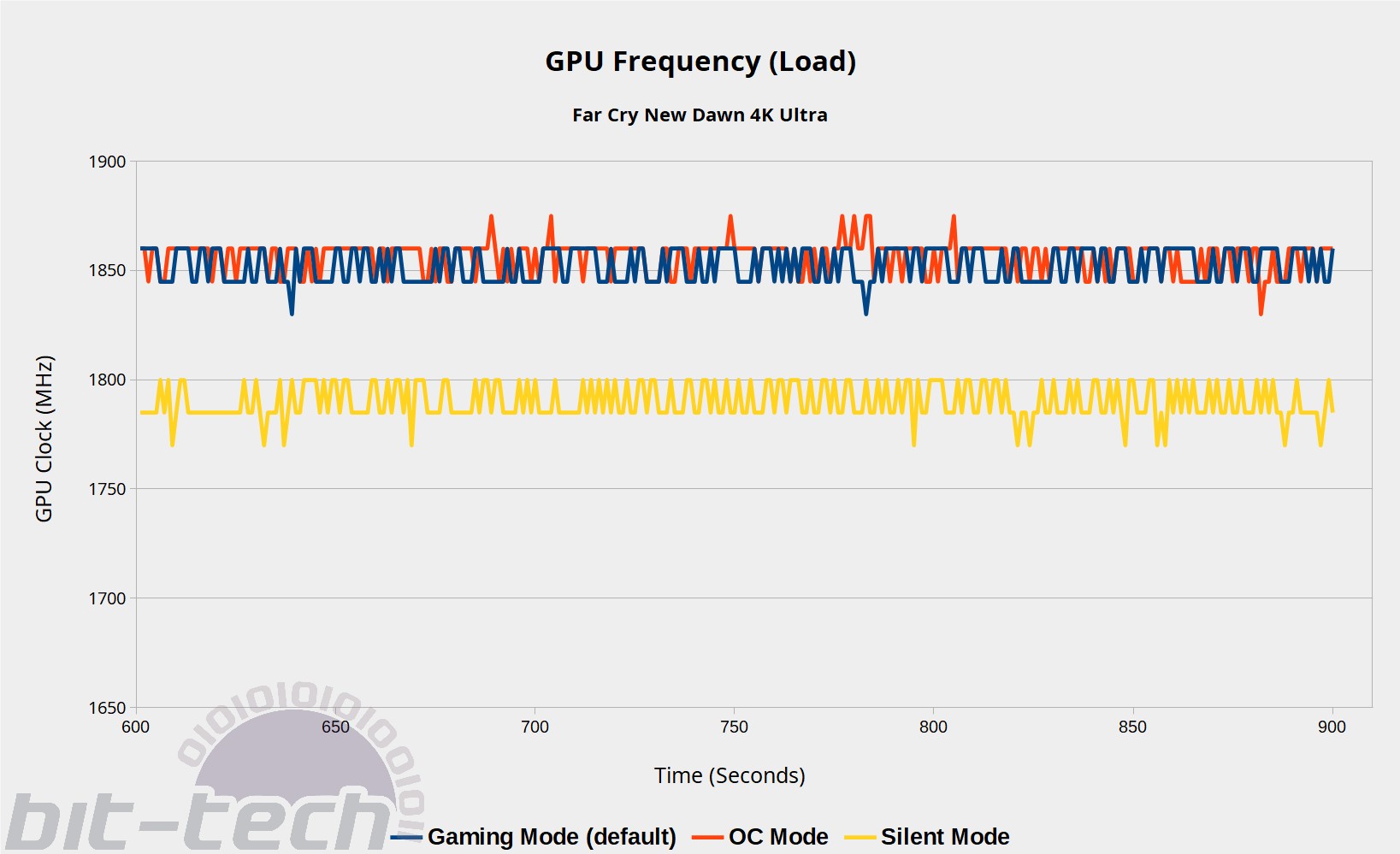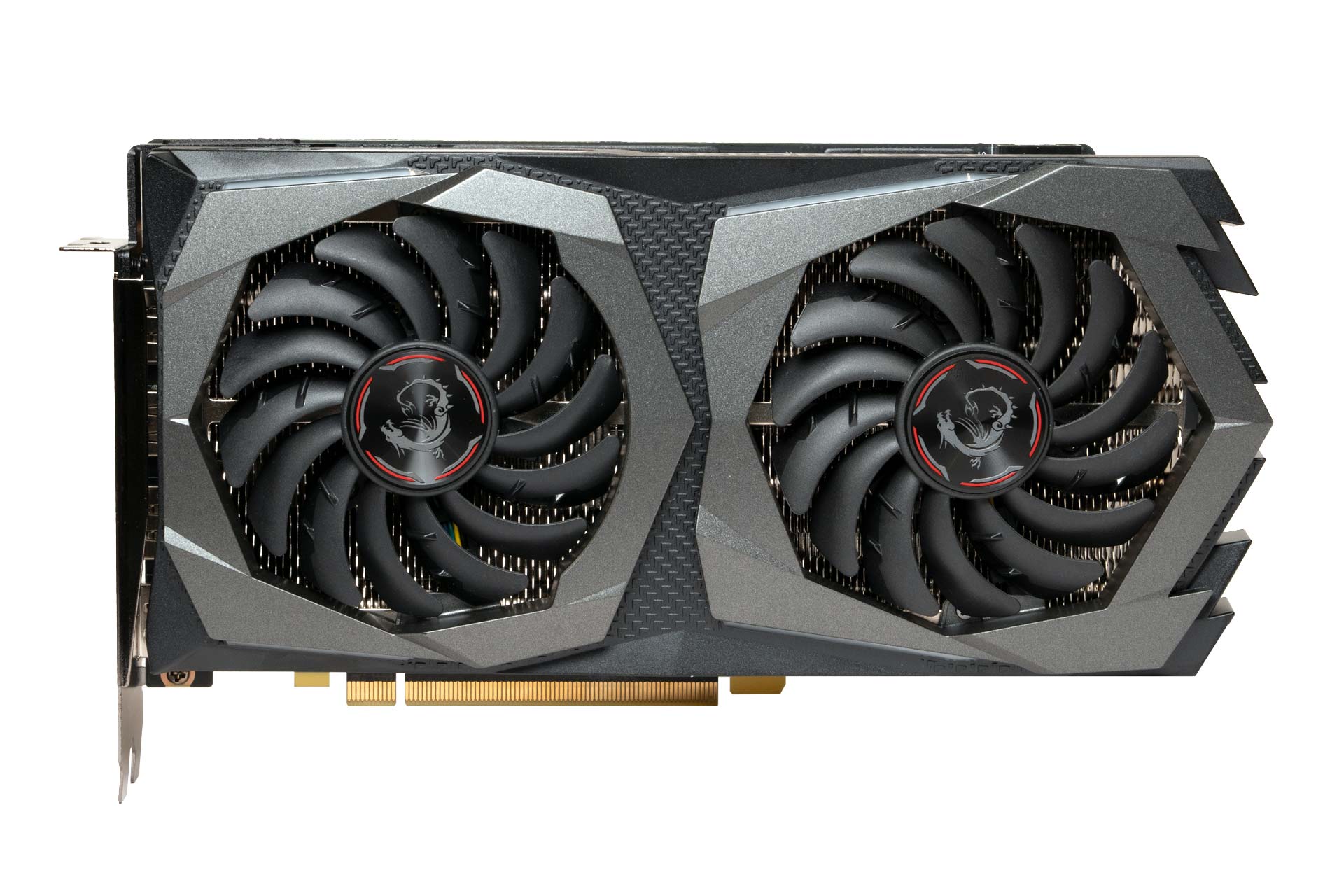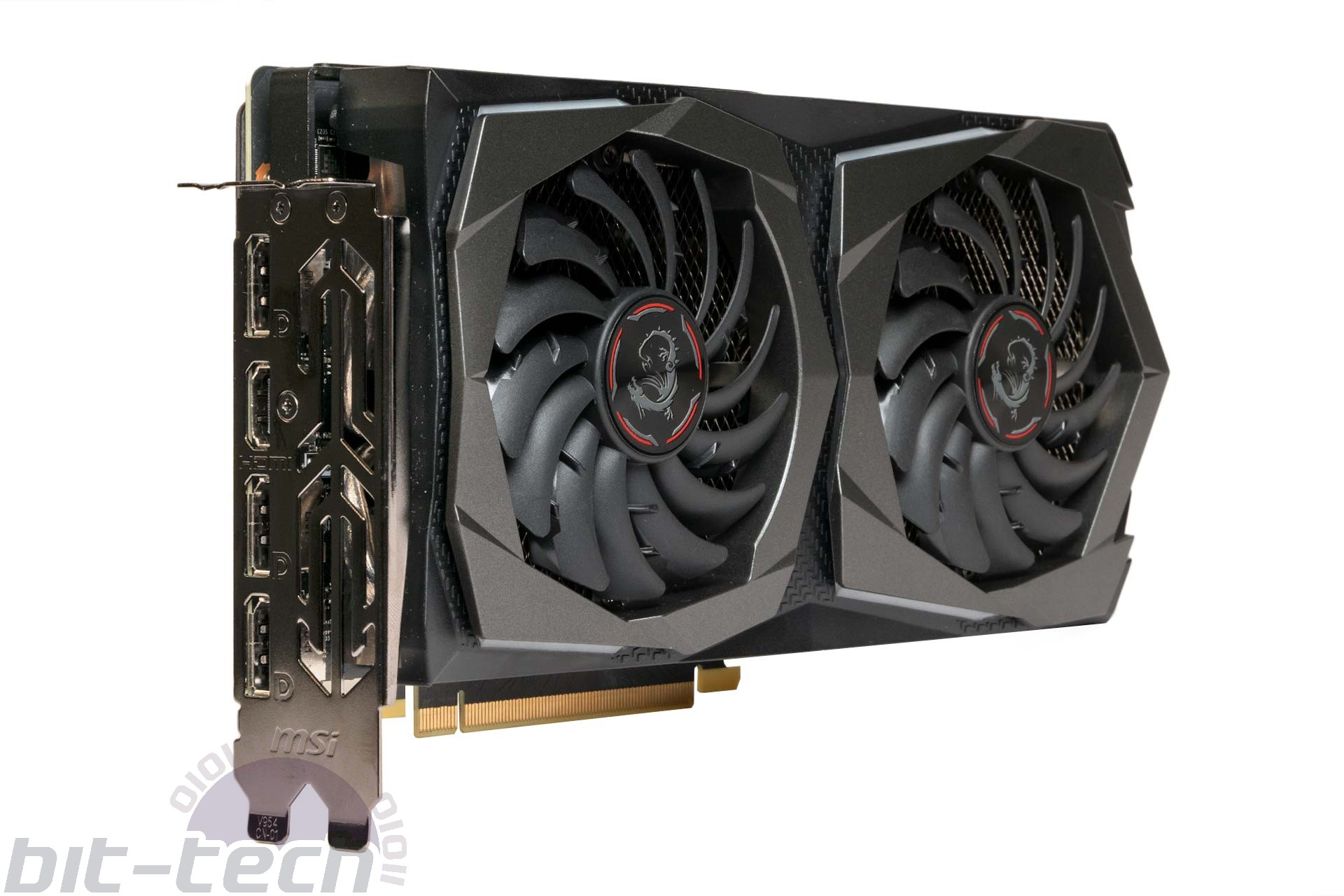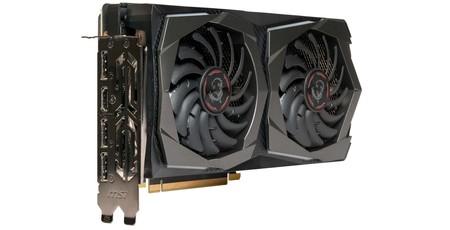Performance Analysis
As expected, the MSI RTX 2060 Super Gaming X doesn’t deviate much from the Founders Edition. This means it excels at 1080p with average frame rates between 68fps and 117fps making it a great candidate for high refresh rate panels. It also handles itself well in VR, and at 1440p the card hits its sweet spot, averaging between 52fps and 91fps with 99th percentile measurements always high enough to keep things smooth. Even in our toughest game, Metro Exodus, it gets 32.1fps on this metric. We know from our original RTX 2060 Super review that 4K is too hard for this card, so we haven’t tested it here. Check that review out if you want a more detailed breakdown of this GPU’s performance and position in the market.
MSI’s 45MHz overclock compared to the Founders Edition (about 2.7 percent) nets it just under 2.5 percent more performance on average. Nice to have, but not game changing in the slightest. The faster core also seems to benefit 1080p gameplay more than 1440p, but only slightly. The overclock allows it to beat RTX 2070 by two percent, and it comes out 16 percent ahead of RTX 2060.
The two main AMD comparisons that are relevant are Vega 64 and, of course, RX 5700 XT. MSI’s card is 13 percent faster than the former, but even with its overclock it can’t quite catch the RX 5700 XT. In our tests, AMD’s new Navi part is still three percent ahead on average, and this extends to five percent when we focus only on 1440p and six percent when we restrict the comparison to DX12 only. By contrast, MSI’s card is a match on average for RX 5700 XT in DX11 and at 1080p. Nvidia’s biggest win comes in Far Cry New Dawn at 1080p, and AMD’s best performance is in Metro Exodus at 1440p.
Enabling ray tracing in Metro Exodus saw performance fall by 16.5 percent at 1080p and 22 percent at 1440p, with the latter giving us a 99th percentile frame rate below 30fps. We recommend sticking to 1080p if you intend on playing as many RTX-enabled games as possible.

| Boost Clock (Nominal) | Boost Clock (Actual) | Memory Data Rate | Power Limit | |
|---|---|---|---|---|
| OC Mode (Software) | 1,710MHz | ~1,860MHz | 14.3Gbps | 100% |
| Gaming Mode (Default) | 1,695MHz | ~1,860MHz | 14Gbps | 100% |
| Silent Mode (Software) | 1,620MHz | ~1,800MHz | 14Gbps | 100% |
Default boost behaviour sees a clock speed fluctating between 1,845MHz and 1,860MHz, which is a little over three percent faster than with the Founders Edition. This frequency plot shows clear signs of the card’s power limitations; a completely straight line would be more ideal, but at least we are not seeing signs of thermal throttling. The cooler performs well, albeit no better than the Founders Edition.
Power levels are as expected, while noise levels that are audible under load but not loud, and the tone of the fans is not annoying. Again, though, that same description applies equally to the FE unit, and MSI does not offer any real improvement noise-wise. It does have semi-passive fans, though, and these do turn off almost immediately once you quit a game.
This actually contradicts our experience with the RTX 2060 Gaming Z, where the card was definitely quieter than the RTX 2060 FE. With its almost-RTX 2070 configuration, the RTX 2060 GPU seems to be placing a fair bit of added stress on the cooler, which again was originally designed for RTX 2060.

The plot for the OC Mode shows just how pointless it is; the clock behaviour is virtually unchanged, and consequently performance will be no different. Silent Mode definitely has an impact on clock speeds, and we observed a 2.5 percent dip in our Time Spy score, but fan speeds, temperatures, and noise levels are identical to both other modes, so Silent Mode should just be called Slow Mode. In fact, just stick to out-of-box performance or manually overclock with MSI Afterburner.
Speaking of, our boost speed with our manual OC applied went up to 1,920-1,935MHz i.e. four percent. The card had to compensate with slightly louder fans, and the unit was still listed as power-limited. The built-in power limit starts to make more sense, as we wouldn’t want the cooler getting much louder than it did in this testing. Coupled with a nice boost to memory speed, we saw a 5-6 percent improvement in performance.
Sadly for MSI, we received Gigabyte’s RTX 2060 Super Gaming OC card moments before this launch. This isn’t even a flagship unit (that’ll be the Aorus card), yet its initial out-of-box performance was greater than the performance we saw when running the MSI Gaming X with a maximum manual overclock. Power consumption was up significantly, and it uses a larger cooler, but still… Yikes.
Conclusion
We’ll get the positives out the way first. MSI’s build quality is again excellent, and it ticks the boxes we’re looking for from a third-party card: decent temperatures, a built-in core overclock and (software-accessible) memory overclock, semi-passive fans, and there’s even RGB.
However, compared to MSI’s previous Gaming cards, the RTX 2060 Super Gaming X is vastly underwhelming on clock speeds. We initially suspected a GPU limitation, but actually it now appears to be a result of MSI’s decision to run RTX 2060 Super in an RTX 2060 PCB/cooler design. We need to examine competing cards more thoroughly, but the initial evidence all points towards this. Perhaps MSI made this decision to save money, perhaps is was misled by Nvidia’s branding, but Gaming X is a premium part, so the larger Twin Frozr 7 cooler would absolutely have made sense, and it seems like it would have unleashed a lot more potential. In its current guise, however, the cooler here is not as successfully deployed on this GPU as it was on RTX 2060, where the noise improvement over the Founders was obvious. Here, there’s no such luck, and the same is true of temperatures and power.

This leaves MSI in a precarious position. Unable to offer much to differentiate itself from the Founders Edition beyond RGB lighting and semi-passive fans, the RTX 2060 Super Gaming X simply isn’t that exciting, and it looks like competitors are going to offer significantly faster cards with mid-tier offerings. It’s a good card in its own right, but so is the Founders Edition, and this makes any premium MSI adds on top hard to swallow, especially as there’s the double whammy of it looking worse and worse against Radeon RX 5700 XT with every extra pound added. At the time of writing, we’re told to expect £450 (plus or minus £20) a price at which we just can’t recommend it. The card has now been confirmed as £429.99 MSRP, although we still think it is too expensive at this price based on what we've seen.
Instead, we’d advise buyers to wait and see if custom Navi designs are more exciting, save some cash and buy the Founders Edition at MSRP, or getting better value by seeking out less power-limited designs of RTX 2060 Super – which of these options is for you will depend on your priorities.
MSI has been in touch to say that it is working on getting us answers to/explanations for the issues we have with this card - we'll update you if and when anything comes of this.

MSI MPG Velox 100R Chassis Review
October 14 2021 | 15:04










Want to comment? Please log in.